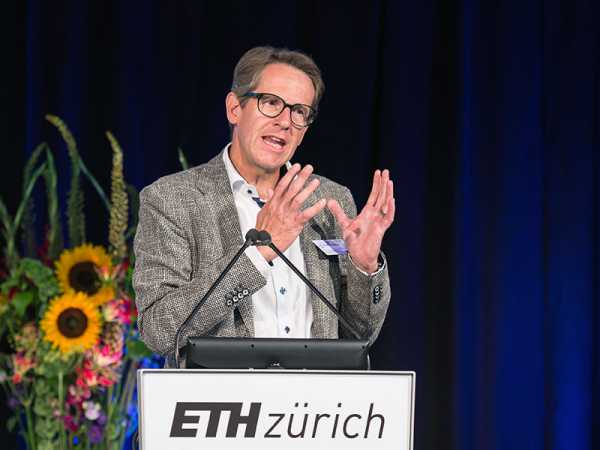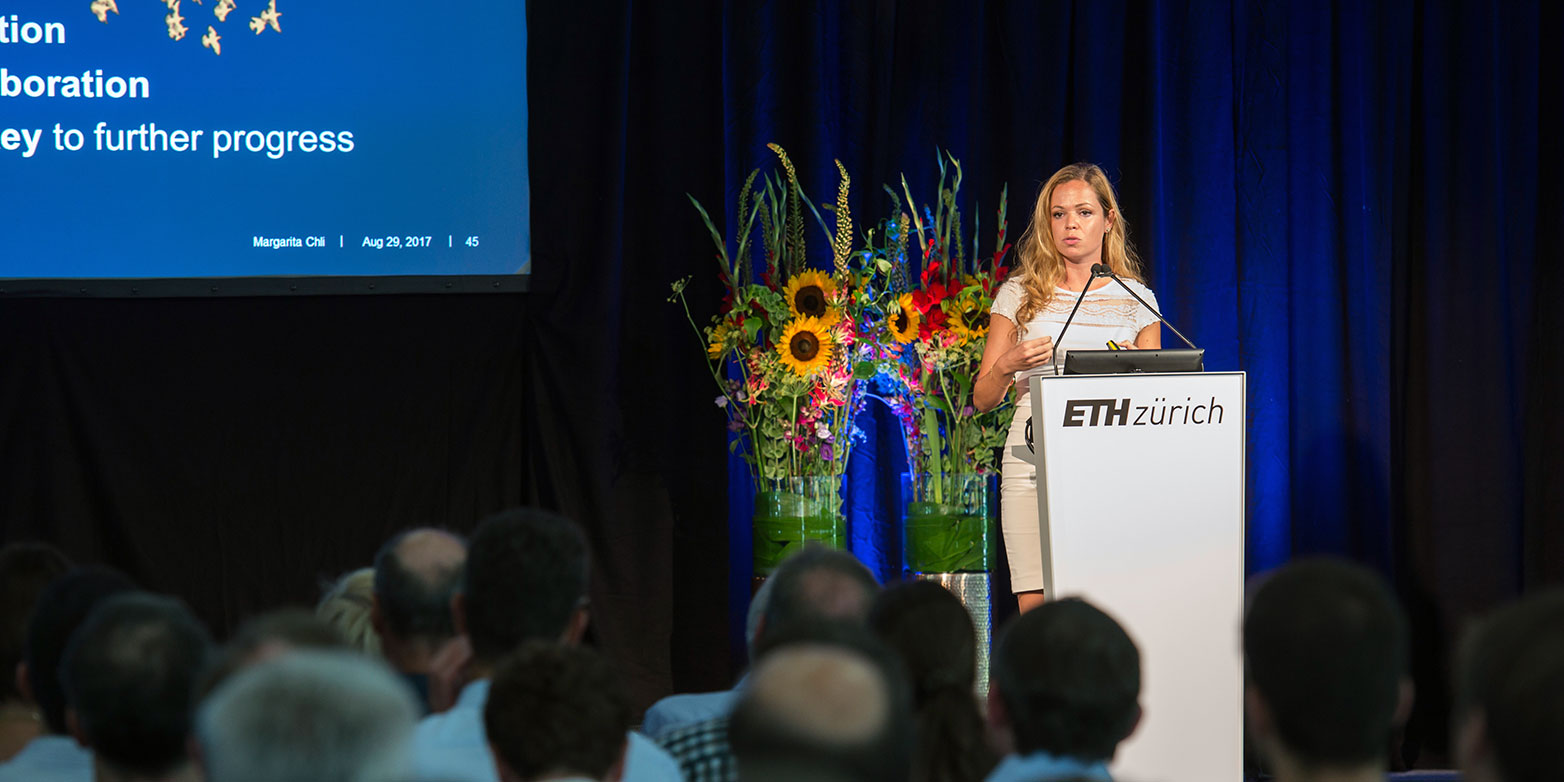A source of inspiration
A bed in which you don’t snore and 20 other ETH Zurich research projects with a practical application – Industry Day 2017 offered these inside views. About 600 people from the business community used the platform to engage in an exchange.
Snoring can develop into a health problem, which is why a Swiss company is now working together with ETH researchers to develop a bed that can reduce snoring. Thanks to the latest technology, the bed can modify the posture of the sleeping person by means of easy movements, and thus prevent snoring. This technology is being explored in ETH’s Sensory-Motor Systems Lab. The bed is just one example of how ETH Zurich works together with small and medium-sized enterprises (SMEs).
“Many of today’s complex problems are solved at the interface between research and industry,” said Detlef Günther, Vice President Research and Corporate Relations, on Tuesday afternoon at the opening of Industry Day 2017, ETH Zurich’s annual information and meeting event for the business community.
Industry Day acts as a showcase for research: over the course of an afternoon, research, development and innovation managers from industry are given an insight into current ETH research projects that may have industrial applications. The some 600 guests present were also presented with a new ETH Zurich newsletter for the industry (see below).
Further strengthening the exchange
“Industry Day at ETH Zurich is always a source of inspiration,” said Andreas Bong, Head of Corporate Research and Technology at tool manufacturer Hilti, in his speech. The company, which brings 60 new products on to the market each year, has been collaborating with ETH Zurich and other universities for years. “An event like Industry Day helps us identify early on when we would like to participate in a certain technology,” says Bong. He would like to further strengthen the exchange since “time matters” in the development process.
This feedback resonates with Günther and the team at Industry Relations, ETH’s contact point for industry enquiries. The 20 lectures by the ETH professors and spin-offs were short and concise this year too, following the tried-and-tested format that the love of complexity also includes simplification. The four subjects around which they were organised emphasised practical application: Mobility and Energy, Construction and Production, Information and Communication, and Health, Nutrition and the Environment.
The understanding of mobility is changing
In Mobility and Energy, for example, Martin Saar, Professor of Geothermal Energy and Geofluids, took participants through the current focus areas of geothermal energy. In order to be able to use geothermal energy, we need not only "shallow" heat but also water-permeable soils or other liquids that work beneath the surface, he said. As only a few sites in Europe qualify, societal challenges in large-scale energy distribution arise.
ETH professor Gabriela Hug deals with large electric power systems. She described the challenge facing research and development as the electricity grid becomes even more complex, increasingly contains intelligent network components, sensors and smart meters, and accumulates large amounts of data. “How do we deal with fluctuations and uncertainties in such systems?” she asked.
In the field of mobility, the trend is towards autonomous, self-driving vehicles. Emilio Frazzoli, Professor of Dynamic Systems and Control, is conducting research in this area. In addition to technical issues, he is also engaged in issues of safety, comfort, accessible driving for disabled people, and sustainability. “Autonomous vehicles are changing the way we think about mobility,” he said.
This development includes not only cars, but also intelligent aircraft and other flying objects. Margarita Chli, Professor of Vision for Robotics, is active in this area. She wants to teach robots “to see”. More specifically, her flying robots must learn how to jointly explore their surroundings and solve tasks within the group. “Perception and collaboration are key to making progress in robots,” said Chli.
An important role in the transfer of knowledge from science to the economy is played by spin-offs such as Sunredox. The start-up is developing clean and sustainable fuels with a focus on solar reactors that produce fuel from CO2 from the air and sunlight, explained Sunredox founder Philipp Furler. Attentive observers presumably will see next year a silver bowl on the roof terrace of the ETH building at the corner of Rämistrasse and Tannenstrasse: a demonstration unit by Sunredox.
Industry news and info for SMEs
In addition to the tried-and-tested event concept, Industry Day 2017 also offered new features: the exhibition section, which invites participants to take part in direct exchanges and discussions between science and business, has been expanded considerably. This year, 51 ETH professors and spin-offs presented their research and its practical significance.
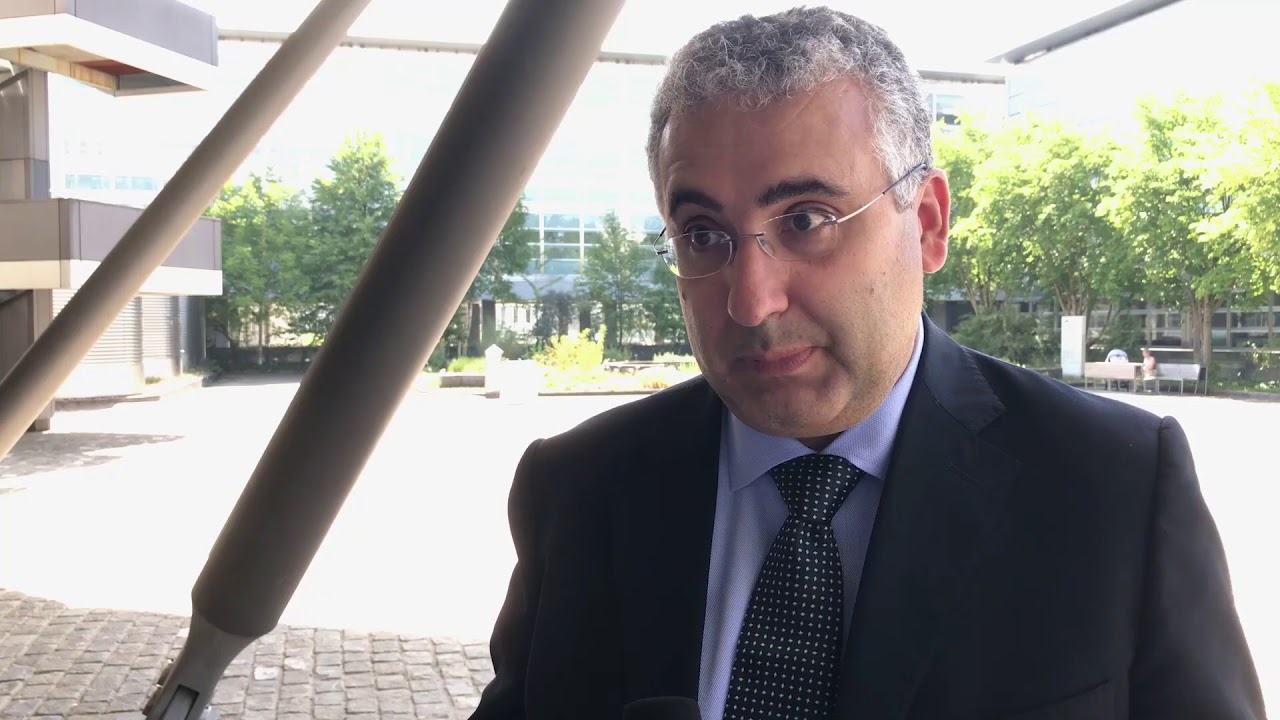
To provide companies with the simplest and quickest insight into ETH research, ETH presented a new newsletter at Industry Day aimed at the information needs of industry. “ETH News for Industry” introduces new, application-oriented ETH projects every two months. The English news articles and online videos are short, catchy and informative.
ETH provides companies with online information about ongoing research, possible partnerships, licences and upcoming events. A separate sub-page is aimed at SMEs to facilitate their access to research at ETH Zurich and cater to their needs.
The exchange goes in both directions: companies can also post their inquiries and concerns on the website. “The feedback from business is important to us,” says ETH Vice President Günther, sending a signal that ETH Zurich is open to the concerns of industry.
Picture gallery from the Industry Day 2017
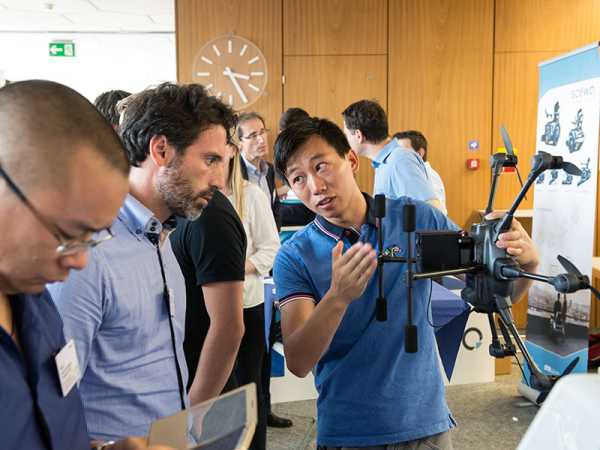 Medical technology is a research area with numerous contacts points to practical applications, such as intelligent wheelchairs.
Medical technology is a research area with numerous contacts points to practical applications, such as intelligent wheelchairs.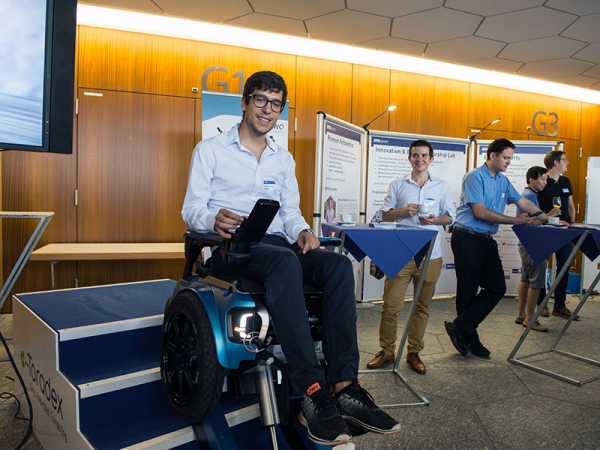 “Autonomous vehicles are changing the way we think about mobility,” says ETH professor Emilio Frazzoli.
“Autonomous vehicles are changing the way we think about mobility,” says ETH professor Emilio Frazzoli.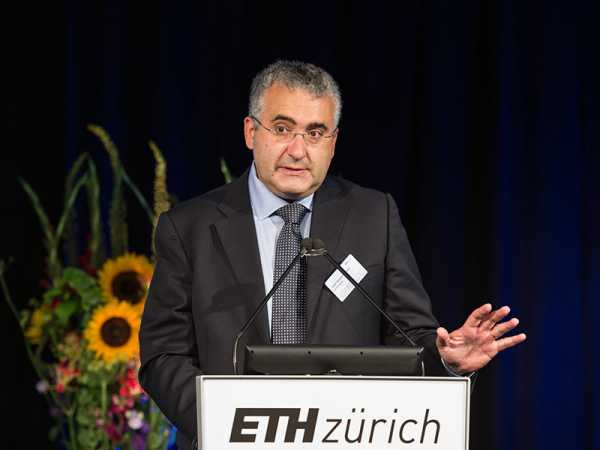 ETH professor Gabriela Hug describes the challenges that arise when the electricity grid becomes even more complex.
ETH professor Gabriela Hug describes the challenges that arise when the electricity grid becomes even more complex.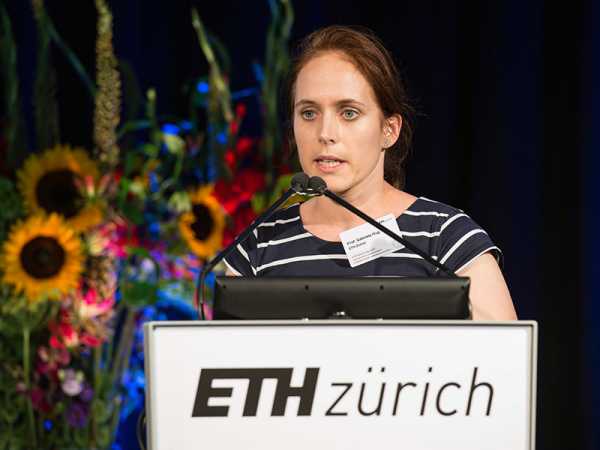 His start-up is developing clean and sustainable fuels from air and sunlight, explained Sunredox founder Philipp Furler.
His start-up is developing clean and sustainable fuels from air and sunlight, explained Sunredox founder Philipp Furler.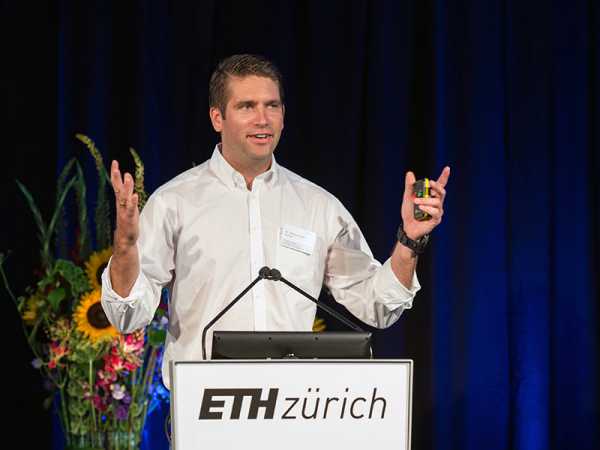 ETH professor Martin Saar takes participants through the current focus areas of geothermal energy.
ETH professor Martin Saar takes participants through the current focus areas of geothermal energy.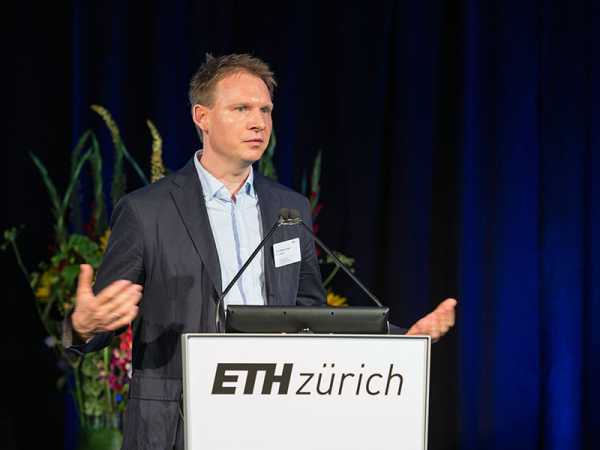 ETH and its fundamental research are open to the concerns of industry: ETH Vice President Detlef Günther (middle).
ETH and its fundamental research are open to the concerns of industry: ETH Vice President Detlef Günther (middle).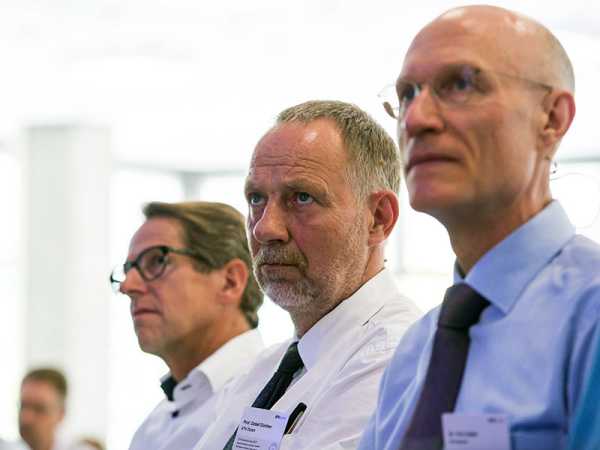 Industry Day is a source of inspiration for Andreas Bong, head of research and technology at Hilti (left).
Industry Day is a source of inspiration for Andreas Bong, head of research and technology at Hilti (left).